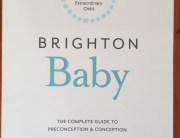What is Fair Trade?
 “Fair Trade is a trading partnership, based on dialogue, transparency and respect, that seeks greater equity in international trade. It contributes to sustainable development by offering better trading conditions to, and securing the rights of, marginalized producers and workers – especially in the South. Fair Trade organizations (backed by consumers) are engaged actively in supporting producers, awareness raising and in campaigning for changes in the rules and practice of conventional international trade.”
“Fair Trade is a trading partnership, based on dialogue, transparency and respect, that seeks greater equity in international trade. It contributes to sustainable development by offering better trading conditions to, and securing the rights of, marginalized producers and workers – especially in the South. Fair Trade organizations (backed by consumers) are engaged actively in supporting producers, awareness raising and in campaigning for changes in the rules and practice of conventional international trade.”
Why Fair Trade?
International trade has been a historical link between peoples of the world. It can be used to increase corporate profits without benefit to the wider community and to promote intercultural understanding, grassroots development and economic justice. The advantages of current international trade practices are not visible to all people in the world. For small farmers, access to market or price information is difficult and as a result, many become increasingly dependent on middlemen and receive smaller and smaller returns for their work. In bad times, many lose their only property – their land – and thus, their livelihoods.
Similarly many plantation workers endure low pay, unsafe working environments and poor living conditions. Too often they lack the opportunity to participate in decisions that affect their lives on the plantation. The way that many products are produced, traded and consumed is simply unjust; this is a major cause of continuing world poverty.
Fair Trade is an alternative approach to conventional trade. It is a trading partnership based on dialogue, transparency and respect that seeks greater equity in international trade. It contributes to sustainable development by offering better trading conditions to, and securing rights of, marginalised producers and workers – especially in low-income regions.
Fair Trade is about giving disadvantaged people power: by paying producers and workers fair prices for their work, by helping them gain the skills and knowledge they need to develop their businesses and to operate in the global economy, and by challenging unfair trading practices. It is about providing fair go, not charity. Together we can create more awareness of international consumer power and offer Australians and New Zealanders an opportunity to make real change through supporting fair trade activities and buying fairly traded products.
Australians spent more than AU$17 million on Fairtrade coffee in 2008, delivering AU$1.2 million of Fairtrade Economic Benefit to coffee growers on top of standard market prices. New Zealanders choosing Fairtrade coffee delivered almost NZ$800 000 in Fairtrade Economic Benefit to small farmer coffee cooperatives.
Fairtrade Certified coffee farmer cooperatives in the developing world invested the economic benefits from Fairtrade on activities such as improving infrastructure such as roads, building schools and enhancing education, growing new coffee trees to improve yields and quality, and providing health care in rural areas
Fairtrade’s unique approach of guaranteeing minimum prices and ensuring buyers pay Fairtrade Premiums for cooperatives to invest in development delivers a range of economic, social and environmental benefits including:
• security and stability of incomes to farmers
• a safety net from highly volatile commodity markets
• the capacity to plan for and invest in a future for their farms and their families
• access to markets and creation of value adding opportunities
• improvements in education and training opportunities and environmental farming practices



















































































































































